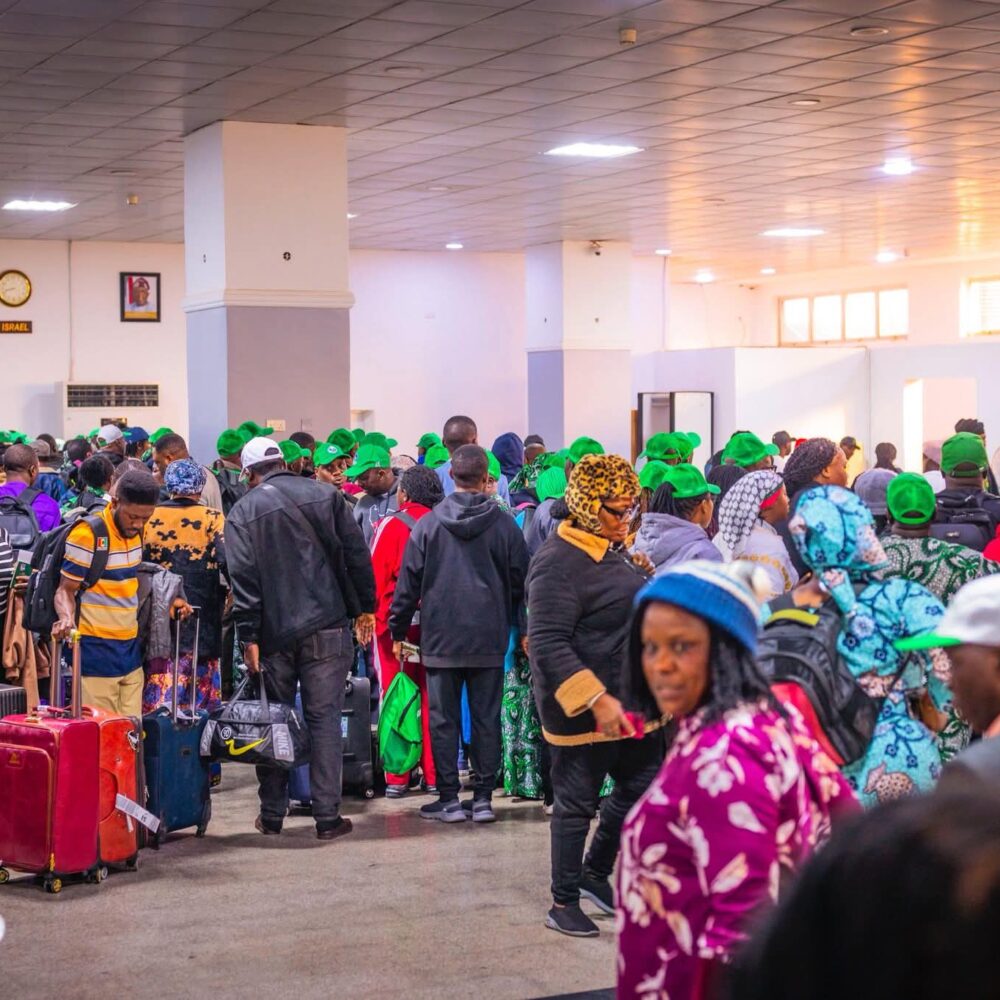The Chairman of the House of Representatives Committee on Basic Education, Prof. Julius Ihonvbere has reaffirmed his commitment to championing the amendment of the Universal Basic Education (UBE) Act 2004 as a matter of urgent national priority.
He declared his commitment to free, safe and gender-responsive basic education by signing the Legislative Declaration on COVID-19 and Girls’ Education during a recent meeting with a delegation of the #AmendUBEAct Coalition at the National Assembly Complex, Abuja. Invictus Africa, Malala Fund, PLAN International Nigeria, Save the Children and YouthHubAfrica represented the coalition at the meeting.
The legislative parley was part of the wider Malala Fund COVID-19 campaign strategy, aimed at ensuring more gender-responsive legislation and plan for the recovery phase of the pandemic in Nigeria.
The Universal Basic Education (UBE) Act amendment bill is at the committee stage in the House of Representatives. The bill seek to extend free and compulsory education from nine to twelve years, ensure an increase in basic education financing and promote gender-responsive learning, among others.
Prof. Ihonvbere reckoned that the burden of Nigeria’s out-of-school children could hinder Nigeria’s quest for sustainable human and economic development, coupled with the impact of the COVID-19 pandemic. He noted that education has the potency to change children, communities and the country.
“I am committed to Basic Education sector reform and glad to sign this declaration. I am an academician and the Chair of the House Committee on Basic Education. I focus my entire constituency allowance on basic school renovations and furniture because if I do not make an impact on Basic Education, what else can I do?” said Prof. Julius Ihonvbere.
Concerned about the state of basic education in Nigeria, Prof Ihonvbere promised to build consensus amidst legislators on education financing and the extension of the coverage of the UBE Act (2004) from nine to twelve years. He further pledged commitment to sponsoring COVID-19 and non-COVID-19 education reforming laws taking into account the needs of girls and supporting their return to school and education emergencies.
“Statistics already show that while we may be making progress with school enrolments, the higher the class, the lower the number of girls. This means, school enrollment is increasing, but school retention is decreasing. Hence, this #AmendUBEAct advocacy and process will help us have holistic and long-term gains in girl-child education while closing the educational inequality gap,” said Bukky Shonibare, Executive Director, Invictus Africa.
Malala Fund’s recent research shown that 20 million additional secondary school-aged girls around the world may be out of school once the crisis has passed due to increased rates of poverty, household responsibilities and child labour.
“We are facing a new and difficult economic reality. I implore you to remember that amending the Universal Basic Education Act (2004) to cover up to senior secondary school, and ensuring adequate funding — increasing UBE fund from 2% to 3% CRF — is critical to Nigeria’s education plan for Recovery and Resilience to build back better in response to the COVID-19 pandemic,” said Crystal Ikanih-Musa, Malala Fund’s In-country representative.
“The process has been slow, but surely with the commitment of all stakeholders – our collective desire of lifelong learning for children (especially girls) will soon be achieved,” said Laban Onisimus, Education Lead at PLAN International Nigeria.
Recent findings by YouthHubAfrica revealed that many schools struggling with insufficient finances as states are faced with the herculean task of providing 50% counterpart funding before they can access the Matching Block grant.
This affected their ability to run and provide quality education, prompting most schools to collect additional finances from students, described as hidden fees.
The signing of the legislative declaration by the Chairman House Committee on Basic Education is a big win for the process of reforming Universal Basic Education in Nigeria. We are committed to supporting your drive for improved quality basic education for Nigerian children, especially the girl-child. The more the quality of basic education is improved and children have unlimited access to free, safe and uninterrupted learning opportunities, the better they will live up to their dreams and potentials,” said Badar Musa, Advocacy, Campaign and Policy Manager-LEARN, Save the Children International, Nigeria.
The #AmendUBEAct coalition is a group of development partners, international and local organisations supporting the process to strengthen the legal framework for free, safe and quality basic education in Nigeria.






